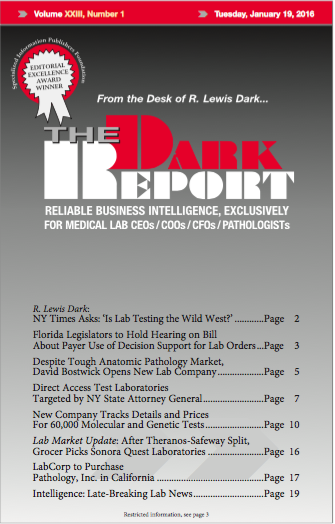CEO SUMMARY: Once again, entrepreneur and pathologist David G. Bostwick, MD, is starting up a new lab company. Granger Diagnostics is now open and is located in North Chesterfield, Virginia. It is designed to be an anatomic, clinical, and molecular pathology reference laboratory. In an exclusive interview, Bostwick identified three substantial changes that have happened …
Despite Tough Anatomic Pathology Market, Bostwick Opens New Laboratory Read More »
To access this post, you must purchase The Dark Report.


